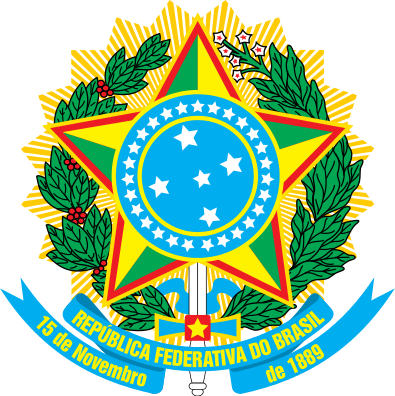Location
Following more than three centuries under Portuguese rule, Brazil gained its independence in 1822, maintaining a monarchical system of government until the abolition of slavery in 1888 and the subsequent proclamation of a republic by the military in 1889. Brazilian coffee exporters politically dominated the country until populist leader Getulio VARGAS rose to power in 1930. By far the largest and most populous country in South America, Brazil underwent more than a half century of populist and military government until 1985, when the military regime peacefully ceded power to civilian rulers. Brazil continues to pursue industrial and agricultural growth and development of its interior. Having successfully weathered a period of global financial difficulty in the late 20th century, Brazil was seen as one of the world’s strongest emerging markets and a contributor to global growth. The awarding of the 2014 FIFA World Cup and 2016 Summer Olympic Games, the first ever to be held in South America, was seen as symbolic of the country’s rise. However, since about 2013, Brazil has been plagued by a shrinking economy, growing unemployment, and rising inflation. Political scandal resulted in the impeachment of President Dilma ROUSSEFF in May 2016, a conviction that was upheld by the Senate in August 2016; her vice president, Michel TEMER, will serve as president until 2018, completing her second term.
Brazil is a federal presidential republic.
Source: CIA World Factbook
Members:
Resources
Displaying 31 - 35 of 180Law No. 6.709 establishing reform, settlement and colonization of vacant lands belonging to the State of Piauí.
This Law, consisting of 8 Chapters establishes reform, settlement and colonization of vacant lands belonging to the State of Piauí. The Institute for Reform and Land Regularization - INTERPI is the competent body for the management and administration of land policy in the State of Piauí, in accordance with State Law No. 3.783 of 16 December 1980. The INTERPI may create support offices inside the State, called Land Governance Office aiming to accelerate the fulfillment of its objectives. Land regularization includes rural and urban public land of the State of Piauí.
Decision of Directorate CETESB No. 38 approving the "Procedures for Soil and Groundwater Quality Protection".
This Decision of Directorate approves the three Annexes providing for new procedures for soil and groundwater protection and establishes guidelines for the management of contaminated areas and potentially pollutant infrastructures. It specifies the "Procedures for Soil and Groundwater Quality Protection", the revision of the "Procedure for the Management of Contaminated Areas" and establishing the "Guidelines for Management of Contaminated Areas in the Environmental Licensing Areas".
Law No. 11.952 concerning public lands.
This Law, consisting of 4 Chapters, establishes the legal regime for the land regulation regarding the rural public lands and occupied territories within the area of the Legal Amazonas. It concerns the different uses of land within the above mentioned area, such as: concession, possession, free land use, etc. This Law is divided as follows: General Provisions (Chap. I); Land Regulation in Rural Area (Chap. II); Land Regulation in Urban Area (Chap. III); Final Provisions (Chap. IV).
Decree 006 of 21 of December 2009, fixing Proxperidade Indigenous Land.
This Decree is composed by two articles and it fixes the limits of Las Casas Indigenous Land, inside of Amazonas State.
Decree No. 6.961 approving the agri-ecological zoning of sugarcane cultivation.
The Decree, composed of four articles and one Annex, provides for agri-ecological zoning of sugarcane cultivation and attribute to the National Monetary Found the duty to establish norms to finance the sector of alcohol production from sugar. The Annex provides technical criteria for the zoning and land-use planning.


